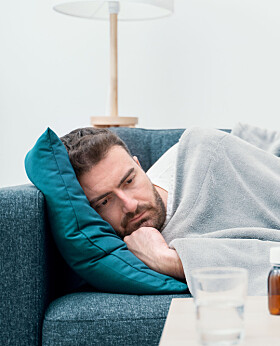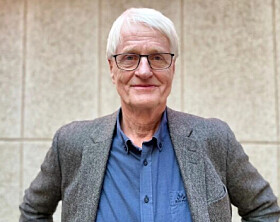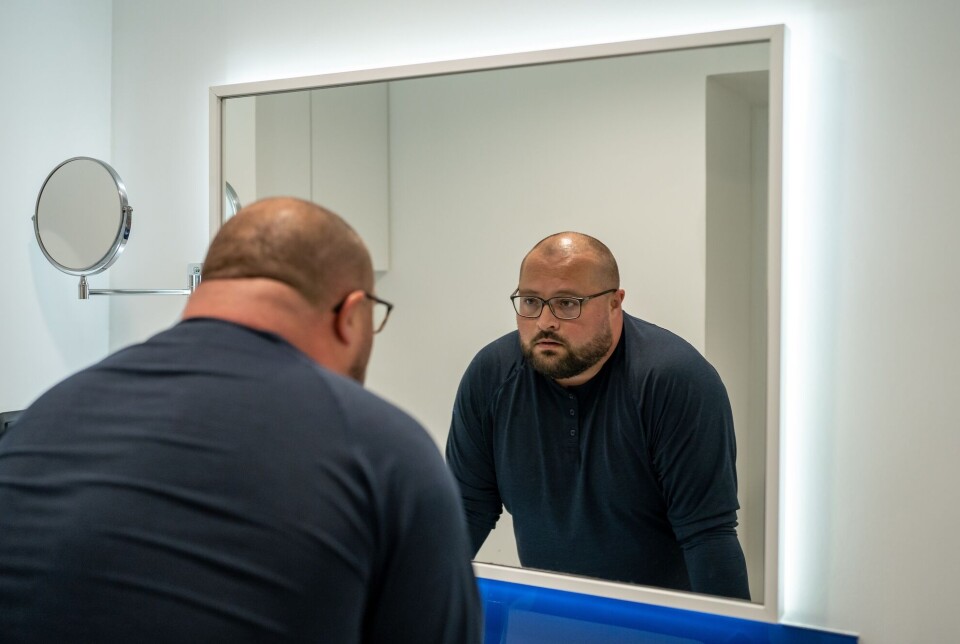
Are low energy and reduced sex drive symptoms of male menopause?
Experts disagree on whether a male menopause actually exists. A Norwegian professor believes that the mid-life changes affecting men and women are surprisingly similar.
“Let's just confirm once and for all: men have menopause too,” Professor Siri Vangen wrote in a blog post on forskning.no.
When Vangen went looking for textbooks on menopause in the library, she found 19 books. Only three of them were about men.
In these three books, she found the same long list of symptoms that women experience during menopause: loss of energy and motivation, reduced libido, sleep disturbances, depression, lower self-esteem, memory problems and loss of focus.
But does male menopause really exist?
We spoke to several researchers, and it turns out that male menopause is quite a controversial topic.
This is primarily due to the method of treatment, which is to give supplements of the most important male sex hormone, testosterone.
Less sex drive, weight gain and loss of energy
But first, do men go through menopause?
“Both yes and no,” says Recep Øzeke.
Øzeke is a urologist and senior physician in the Department of Urology at Oslo University Hospital.
“Male menopause is actually very controversial,” he says to forskning.no.
“Men's menopause is a collection of symptoms that can be caused by a gradual decrease in testosterone levels. This is experienced very differently from one man to the next,” says Øzeke.
The symptoms can include loss of energy and motivation, less sex drive, potency problems, sleep disturbances, weight gain, loss of strength and muscle mass, depression, breast development, hair loss, reduced self-esteem and memory problems.
The decrease in testosterone can occur without symptoms or cause mild symptoms that can be lived with. Others struggle with more significant symptoms, according to Øzeke.
Amazingly similar symptoms
Vangen is an expert on female menopause. She previously wrote a blog post on forskning.no in which she stated that not only women go through menopause. Men also experience a kind of menopause.
“The changes that affect men and women in mid-life are surprisingly similar,” Vangen writes.
“But how these changes are interpreted and handled varies considerably.”
According to Vangen, the biggest difference is that men do not lose the ability to reproduce when they reach menopause.
So what actually happens when men get older?
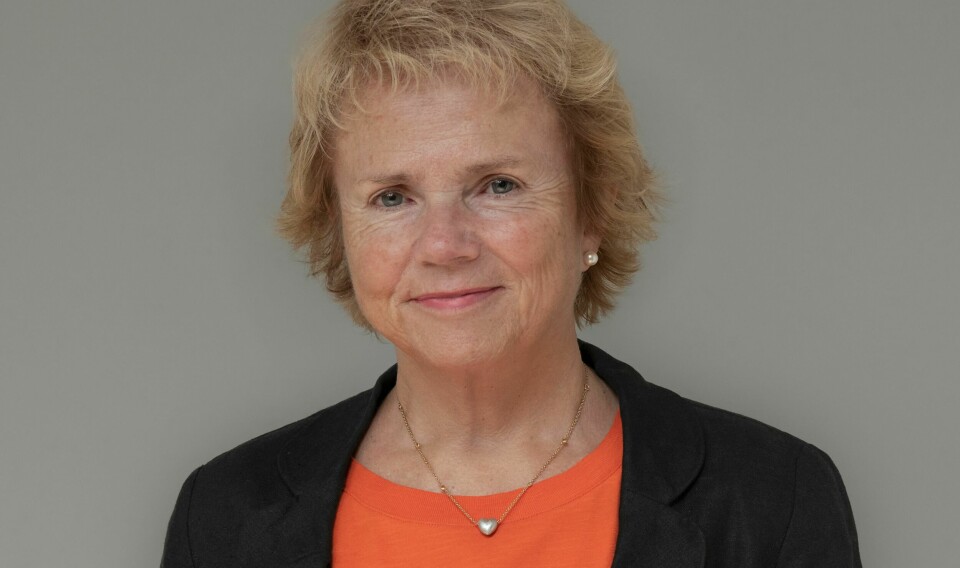
Testosterone level drops
In women, the production of the female sex hormone drops quite abruptly. It mostly happens between the ages of 45 and 55. Symptoms include hot flushes, night sweats and irregular heartbeat.
In men, production of the male sex hormone testosterone falls, but not as abruptly as in women.
“We have scientific evidence that the total testosterone level decreases by approximately one per cent each year from the age of forty. But men experience big individual differences in how they react to this,” says Øzeke.
Therefore, the symptoms are not that clear either.
“Male menopause – if you can call it that – is much more complicated than the female version,” says Øzeke.
The testosterone level falls slowly but surely and therefore causes a variety of symptoms over the years.
“These are signs of incipient old age, and a good number of men struggle with this phase of life,” says Øzeke.
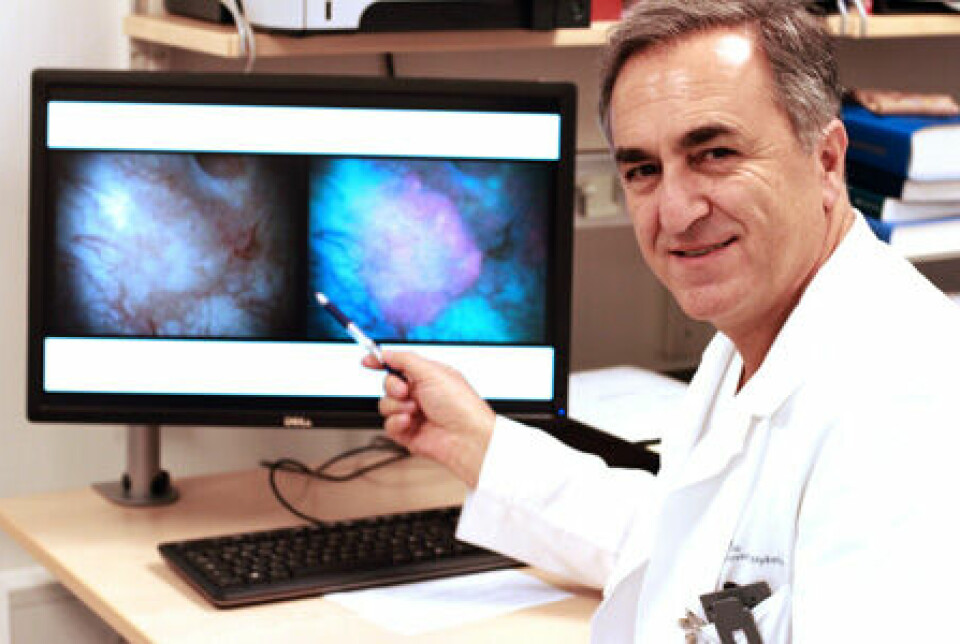
“In general, we can say that men aren’t as mentally prepared for menopause as women are. And most men also often deny the undefined symptoms that creep in.”
Not all men struggle
The gradual fall in testosterone level can happen without noticing much in the way of symptoms.
However, some patients struggle with significant symptoms.
Øzeke says that there are a lot of jokes about men's ‘panic age,’ – they start strength training or run marathons, buy sports cars or large motorcycles and find younger ladies.
“These are hardly symptoms and signs of menopause in themselves, but they can be the men's reactions to compensate for gradually increasing symptoms,” says Øzeke.
“It’s completely natural that the body changes with age. Most are physical changes, but eventually the emotional life will change too. The man loses motivation and energy and begins to worry about small things like finances,” he says.
Can testosterone fix it?
Hot flushes, heart palpitations and depression in menopausal women can be treated with oestrogen hormone supplements.
Can similar symptoms in men be resolved by supplementing with testosterone?
This is where the controversy comes in: “Testosterone isn’t a quick fix,” says Øzeke.
Professionals do not agree on what constitutes seriously low testosterone levels.
“A lot of men want a medicine that allows them to ‘feel like a man again.’ But that's not how it works,” he says.
Doctors don’t address sexual health
Haakon Aars is a doctor and sexologist specializing in psychiatry and clinical sexology. He is the author of the Norwegian book Menns seksualitet - Men's sexuality.
He believes we don’t talk enough about men entering a so-called menopause.
“A lot of the focus has been on women and menopause,” says Aars.
“But what we have to remember is that a lot of men struggle with some of the same types of symptoms, like reduced sex drive and less energy, in addition to accompanying erectile dysfunction,” he says.
It's just not as large a percentage of men as of women who go through menopause.
Aars urges colleagues to increase their understanding of sexual health and what happens to men with low testosterone.
“The general knowledge about sexual health is inadequate,” says Aars.
“Often patients don’t have enough time to talk about the topic with their GP. You’re rarely asked about your sexual health, and if there is a problem, you have to raise it yourself.”
He believes doctors need to take the time to talk to patients properly about sex problems.
“If doctors don’t take the time for it, men often think: ‘Well, I guess that's just how things are. Now I'm old, so there won't be any more sex.’ ”

Treating low sex drive with testosterone
Aars first talks about diet, exercise and lifestyle when he treats people with low sex drive and erectile problems.
“There’s a lot to be gained by reducing belly fat in these men,” says Aars.
“Research has shown a clear connection between waist circumference and one’s own production of testosterone.”
If a blood test shows low testosterone, Aars prescribes testosterone for the patient.
“The supplement creates more sexual desire, it counteracts bone fragility, men get in better shape, and they get their sex drive back,” he says.
Thinks industry will make money on testosterone
Another expert on testosterone decline in men is Finnish professor Ilpo Huhtaniemi. He belongs to a group of researchers at the University of Turku in Finland who specialize in reduced ability to produce testosterone.
Huhtaniemi is both sceptical of testosterone supplements and of the concept of male menopause in general.
“The commercial interest of the pharmaceutical industry in marketing and selling testosterone to ageing men is enormous. But the scientific evidence that it actually works isn’t there,” says Huhtaniemi.
How about another term for men's ailments
According to Huhtaniemi, only two per cent of men between age 40 and 80 have reduced testosterone production.
Huhtaniemi calls this testosterone deficiency in older men late-onset hypogonadism (LOH), not male menopause.
“Male hypogonadism is due to reduced production of testosterone and is linked to sexual symptoms, and only that,” he says.
He believes there is no link with the other symptoms mentioned above.
“Menopause is a term for middle-aged women's last period, so for men it makes little sense,” he says.
Various physical, mental and sexual symptoms accompany hypogonadism. But only the sexual ones – which involve problems with potency, reduced sex drive and fewer morning erections – are specific to low testosterone.
“So we can say that if you’re not having sexual problems, you don’t have low testosterone – or hypogonadism,” says Huhtaniemi.
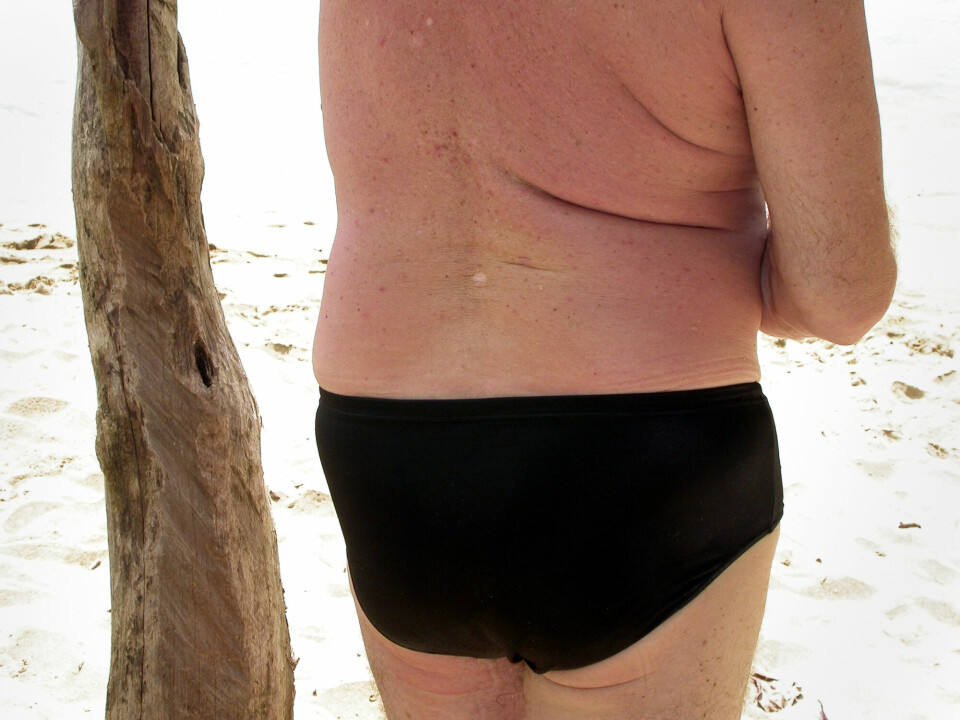
Believes there is no such thing as a male menopause
“Male menopause doesn’t exist,” says Per Medbøe Thorsby.
Thorsby is the medical head in the Hormone Laboratory at Oslo University Hospital and an associate professor in the Department of Medical Biochemistry at the University of Oslo.
Thorsby is also a specialist in endocrinology, which treats diseases related to problems with hormones.
“There’s been a lot of back and forth on this, but there isn’t any sudden new menopause designation for men,” he says.
“This view is well mapped internationally.”
Researchers don't quite know why two percent of men develop low testosterone levels, and they don't always find the cause in individual patients.
“The problem could be with the testicles, or it could lie in the pituitary gland,” says Thorsby.
No morning erection
The symptoms of low testosterone levels are weakness and exhaustion.
But the most important symptom is sexual dysfunction – reduced sexual desire and erection problems.
“One of the symptoms is that men don’t have the spontaneous morning erection,” says Thorsby.
Testosterone normally peaks in the morning and then drops by 30 to 40 per cent during the day.
It also drops after each meal.
“So,” Thorsby points out, “sex after steak on a Saturday night may not be the best time for some people.”

Not everyone has the same amount of testosterone
There can be several reasons for sexual dysfunction, so first we have to rule out other things, says Thorsby.
When diagnosing patients, he takes a blood sample two mornings in a row. He then gets a realistic picture of how low or high the testosterone level is.
If the testosterone level is low both mornings, he will consider starting treatment.
What constitutes a normal testosterone level varies greatly from person to person, according to Thorsby.
So a lot of variation is normal.
“With the method we use at the Hormone Laboratory, the normal range is from 4.6 to 24 nanomoles per litre in men over 40. It’s just as normal to have a value of 8 as of 20.”
Nanomole is a unit of measurement that Thorsby and his colleagues use when they measure the amount of testosterone in the blood.
Dieting is the best medicine
If the patient is overweight, which is very common for men with low testosterone, losing weight is the goal.
Testosterone is bound to a binding protein in the blood. The protein level drops when a person is overweight, thereby lowering the testosterone level in overweight men.
“This is often a good motivation for people to lose weight. By losing weight, your testosterone increases,” says Thorsby. “And everyone wants a high testosterone level.”
If dieting does not work, or for some reason it is not appropriate to lose weight, Thorsby offers testosterone to his patients – but only if they have very low levels of it.
“The most common method is to apply a gel on the upper arm every morning. Or it can be administered through a syringe every three months,” says Thorsby.
Similar to plastic surgery debate
“A lot of people want testosterone,” Thorsby says.
“And some people get it without the tests showing that they actually have low testosterone.”
“Men think testosterone will solve everything, and then it solves nothing,” he says.
“Many good studies show that patients who’ve received treatment with testosterone and who haven’t had really low levels, don’t get any positive effect from the treatment.”
“This is big business in the United States. You can go to a Low T Center, have your testosterone measured and practically get a testosterone supplement the same day.”
Thorsby believes the issue is approaching the plastic surgery debate, where men and women try to fix something that is not wrong to begin with.
“What’s important to realize is that all hormone levels decrease with age. It’s a natural development,” he says.
Can lead to other diseases
“Those of us who work with hormone therapy are sceptical about releasing testosterone where it’s not needed, due to other potential diseases,” Thorsby says.
“Hormones stimulate growth. So if there’s a tumour somewhere, it could also grow.”
Thorsby assures us that studies show that men with low testosterone who receive treatment are safe. They receive extra follow-up of the prostate, for example, so that anything that might start to grow will be detected.
———
Read the Norwegian version of this article at forskning.no








